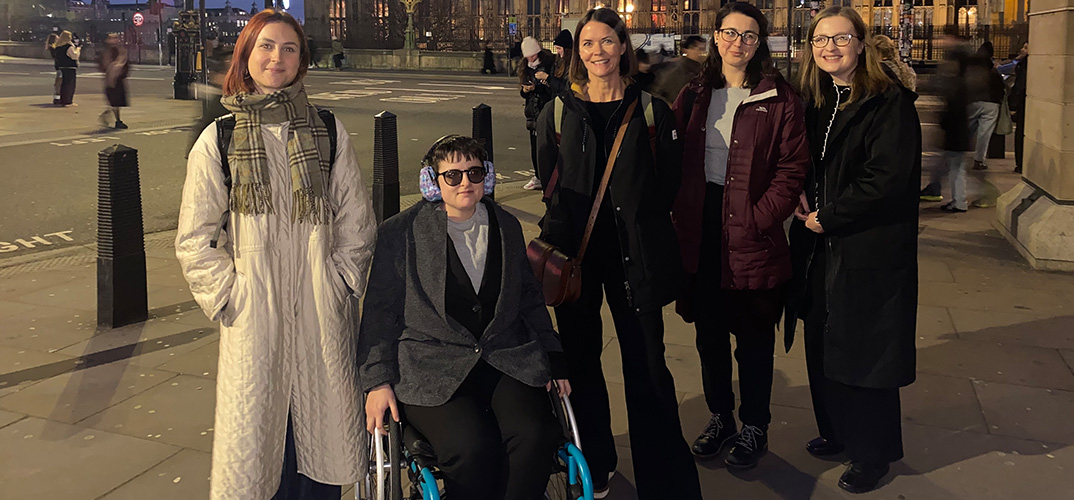Herts academics present MPs with their early study findings aimed at helping SEND children have better access to healthy food at school

Academics from the University of Hertfordshire shared with MPs the early evidence they have gathered from a study aimed at helping children with special educational needs and disabilities (SEND) to have improved access to healthy food at school.
Researchers from Herts and the University of Essex have been working with the charity, School Food Matters, and other stakeholders on the Adapt-Ed project, launched earlier this year, to explore new ways to encourage healthy eating in special schools.
Rebecca O’Connell, Professor of Food, Families and Society at the University of Hertfordshire, and her colleagues were invited to present the interim findings of their research at the School Food All-Party Parliamentary Group (APPG) meeting on Thursday December 19.
The School Food APPG aims to bring together a range of organisations and stakeholders from the sector to champion the school meal service, highlight the issues at a political level, and collaborate to identify best practices.
Speaking after the meeting, Professor O’Connell, who is the joint lead for the study with Dr Amanda Ludlow, said: “Schools are a really important part of meeting children's right to food.
“But at the moment, too many children, especially those with educational needs and disabilities, are not able to take up their entitlement to school food provision and that has got to change.
“We are working with children and young people with special educational needs - who are most affected by school food policy and provision - and other stakeholders, to look at what we might do differently to enable them to access food provision.”
A survey by charity Contact in 2023 found 471 out of 1,500 parents with disabled children eligible for free school meals (33%) said children can’t access their free school meal due to dietary requirements or sensory processing difficulties.
Analysis by the Adapt-Ed team of East of England data shows special schools have around twice the proportion of children eligible for free school meals (FSM) as other types of school.
The data also reveals more than one in four FSM-eligible children in special schools are not taking up their entitlement, while over one in five infant children in special schools are not accessing a universal infant FSM, compared with just one in eight in schools with no SEN or resourced provision.
As part of the next steps, the Adapt-Ed team will prepare a report and a policy brief, which is expected to be published early in 2025. They will also share the Adapt-Ed version of School Food Matters’ ‘Healthy Zones’ programme, which they co-designed with stakeholders.
Building on these findings, the team aims to secure a larger grant to evaluate whether the Adapt-Ed Healthy Zones programme improves children’s access to nutritious food in SEND schools and other specialist settings across the East of England.
Details about the project can be found on the School Food Matters website.
Find out more about studying for a research degree in public health at Herts.
This study is funded by the National Institute of Health and Care Research (NIHR163616). Any views expressed are those of the research team and not necessarily those of the NIHR or the UK government.